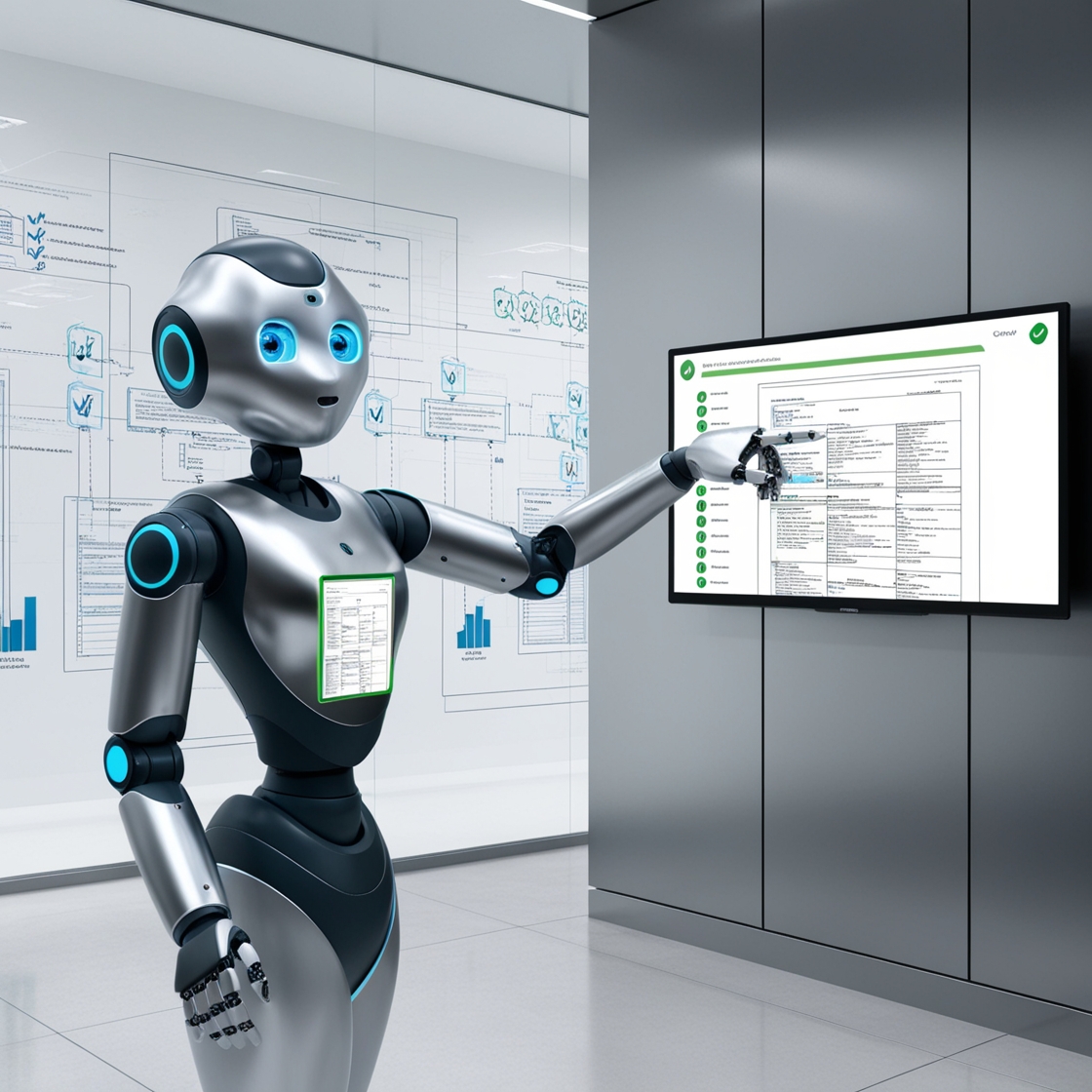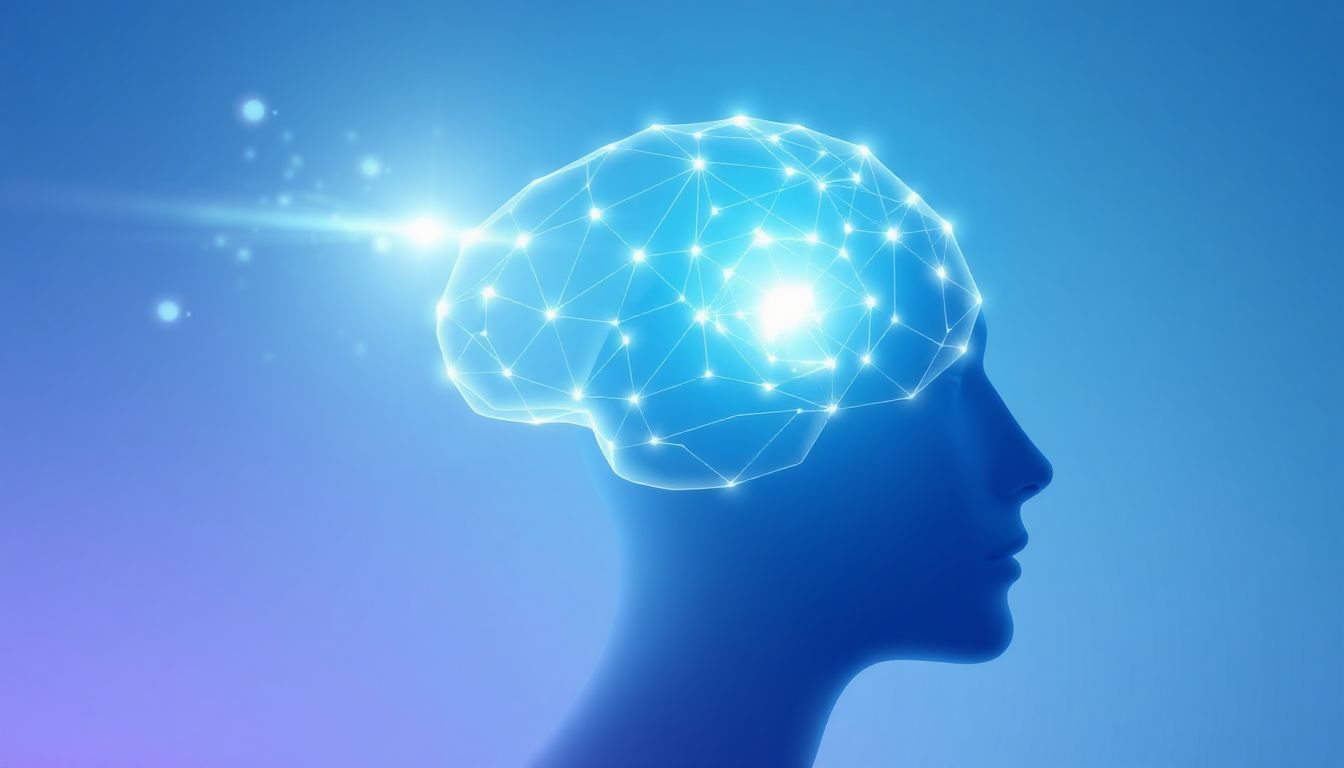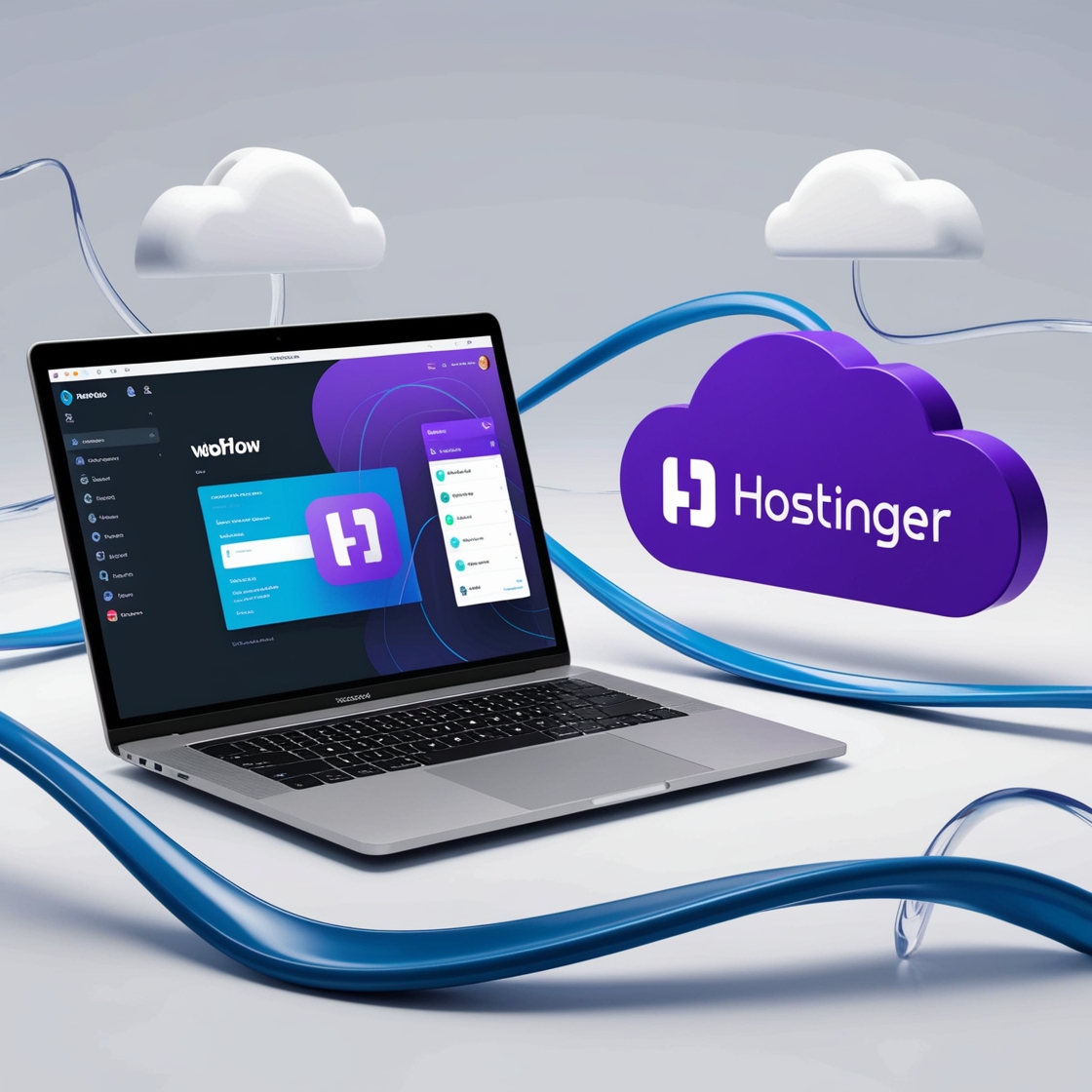
Integrated ISO audits are growing in scope and challenge. These often combine ISO 9001 (quality), ISO 14001 (environment), and ISO 45001 (safety) standards. Traditionally, these audits involve vast manual data collection, tight timelines, and the chance of human mistakes. This can make the process slow and error-prone for many organizations.
Artificial Intelligence (AI) offers a strong answer to these problems. AI is a powerful tech solution that can change how audits are done. It is very good at quickly analyzing huge amounts of data. AI can spot complex patterns and automate many repetitive tasks.
This article shows how AI can help integrated ISO audits. We will look at how AI boosts efficiency, accuracy, and understanding. It aims to make your audit process smarter and more effective.
The Power of AI in Data Analysis for Integrated Audits
Harnessing AI for Risk Assessment and Identification
AI sifts through huge amounts of data. This helps find risks that span multiple ISO standards. It sees dangers in quality, environment, and safety all at once. AI moves beyond simple checks to find hidden issues.
AI programs spot strange things. They find where processes, environmental readings, or safety logs stray from normal. This quickly flags problems that need your attention. AI can even analyze past events. It looks at old audit findings and operations data. This helps predict where risks might appear next, so you can act before issues arise.
Actionable Tip: Use AI tools that watch data feeds all the time. These tools can come from different company parts. They give early warnings about risks.
Automating Evidence Collection and Verification
AI makes getting audit evidence much easier. It takes away the dull work of checking countless files. This frees up human auditors for more complex tasks. You save valuable time and resources.
Natural Language Processing (NLP) scans documents like policies and reports. It finds key proof or signs of non-compliance. This saves hours of manual reading. AI also looks at pictures and videos. It can check things like equipment upkeep or safety rules. This adds a visual layer to audit proof, ensuring nothing is missed.
Real-world Example: Some businesses use AI to pull details from contracts. It finds parts related to quality or environmental rules. This automates checking if client agreements are met.
Identifying Interdependencies Between Standards
AI shines by finding links human auditors might miss. This is key for integrated audits. It shows how one part affects another, revealing a holistic view. This helps you understand your whole system.
AI maps requirements from various ISO standards. It finds where being compliant in one area helps another. This builds a unified view of your systems, making them stronger. AI can trace a problem’s origin too. It might find a quality issue that started in an environmental process. This gives a full picture of the problem, allowing better fixes.
Expert Quote: “AI’s ability to see patterns across separate data sets is priceless for understanding compliance across integrated management systems.” – Dr. Elena Petrova, Lead Auditor at Global Compliance Solutions.
AI-Powered Tools and Techniques for Audit Efficiency
AI for Audit Planning and Scope Determination
AI helps auditors plan their work better. It points them to the most important areas. This makes the audit scope clear and effective, ensuring focus where it matters most. It also boosts audit quality.
AI looks at past audit results and performance. It also checks risk levels. This shows where auditors should focus their time most. AI picks the best samples for review. It makes sure the samples truly show overall health. This helps find issues quickly, speeding up the audit process.
Actionable Tip: Use AI tools to make audit plans based on risk. These plans should change as your company’s data changes.
AI-Assisted Audit Execution and Fieldwork
AI helps auditors right when they are doing their job. It works alongside them during site visits. This makes fieldwork smoother and more precise. Imagine the possibilities for your team.
AI might suggest good questions based on early findings. It could even analyze what people say in real time. This makes interviews more fruitful, gathering better insights. AI also gives auditors dynamic lists to follow. It offers advice specific to the situation during inspections. This keeps auditors on track and ensures all points are covered.
Real-world Example: Mobile audit apps use AI on site. They guide auditors through checks. These apps automatically log data and flag possible issues.
AI for Reporting and Corrective Action Tracking
AI helps create full reports. It also tracks what needs fixing. This brings speed and order to the post-audit phase. You get clear, quick summaries.
AI brings together facts from many places. It turns them into clear audit reports. It can even spot trends and repeated problems, highlighting areas for continuous improvement. AI can suggest good ways to fix issues. These suggestions are based on why the problem started. This ensures fixes are truly effective and last longer. AI also watches how well fixes are working. It tracks their progress over time. This makes sure issues stay resolved, building better systems.
Benefits of Integrating AI into Integrated ISO Audits
Enhanced Accuracy and Reduced Human Error
AI boosts audit accuracy a lot. It cuts down on mistakes humans might make. This leads to more reliable audit outcomes, making your compliance efforts stronger. You can trust the results more.
AI looks at facts without personal feelings. It processes info without human biases. This makes its findings trustworthy and fair. AI checks all important data methodically. It lowers the chance of missing crucial evidence. This means nothing important gets overlooked, giving you full coverage.
Statistics and Data Points: Studies show AI can improve audit accuracy by 30% or more. Many firms report fewer non-conformities after AI use. This proves its real impact on audit quality.
Increased Efficiency and Cost Savings
AI makes audits faster and cheaper. It cuts down on time spent and resources needed. This saves money and effort for your business. Think of what you could do with those savings.
Automating data review speeds up audits greatly. Evidence collection becomes quick. This means audits finish much sooner, allowing you to move on to other vital tasks. AI lets auditors focus on vital work. They can give strategic advice instead of doing manual jobs. This makes their time more valuable, optimizing your team’s potential.
Actionable Tip: Think about how much time AI saves on document checks. You might save hundreds of hours each year. This makes a strong case for using AI.
Deeper Insights and Continuous Improvement
AI turns audits into more than just rule checks. It helps you find ways to get better. This shifts audits to a strategic tool for your business, driving real change. It helps you grow.
AI spots weak points in your systems. It finds chances to make things better. This helps you improve before problems even show up. You can be proactive, not reactive. AI can compare your data to industry leaders. It helps you see top ways to do things. This shows you how to reach higher standards and build a better future.
Expert Quote: “AI changes audits from a look back at rules to a forward push for operational success.” – Mark Johnson, Senior Audit Consultant at Process Streamline Co.
Challenges and Considerations for AI Adoption in Auditing
Data Quality and Accessibility
Good data is a must for AI. AI tools need clean, well-organized info to work right. Bad data means bad results, following the “Garbage In, Garbage Out” principle. This is a critical first step.
If the data you feed AI is poor, its output will be too. Accurate and complete data is key. This ensures AI gives you useful insights. Getting data from many different places can be hard. AI needs to link various systems. This often means sorting out tech problems first, which requires planning.
Actionable Tip: Set up strong rules for data handling. Clean your data before you use AI for audits. This sets your AI up for success.
Ethical Implications and Bias in AI
Using AI brings up important ethical questions. We must think about fairness and privacy. These are big concerns for audits, requiring careful thought. You need to consider these points.
AI can sometimes pick up unfair patterns from old data. It might show favoritism or bias. We must check AI systems to keep them fair and just. Audit data is sensitive and private. Keeping it safe when using AI is vital. Strong security measures are a must to protect your information.
Expert Quote: “Auditors must stay alert to possible AI biases. They need to ensure human oversight is always at the core of auditing.” – Dr. Alex Lee, AI Ethics Specialist at Tech for Good Institute.
Skill Gaps and Training Requirements
Auditors need new skills for AI. The team needs to learn about these new tools. This means investing in training, preparing your workforce for the future. You need to empower them.
Auditors must grasp what AI can and cannot do. They need to feel comfy with AI concepts. This builds confidence in using new tech and helps them integrate it into their work. Special training is needed for auditors. They must learn how to use AI tools directly. Understanding basic data science helps too.
Actionable Tip: Create a training plan for your audit team. This plan should teach them how to use AI tools effectively. It prepares them for the future.
The Future of Integrated ISO Audits with AI
AI will change integrated ISO audits a lot. It promises a future where audits are smarter. This makes compliance a constant process, always active and improving. What does this mean for your business?
Think of AI as a helper for human auditors. It makes their skills even stronger. AI works with people, not instead of them, creating an “augmented auditor.” Audits could become an ongoing, active process. AI could power checks constantly. This means fewer surprises and faster fixes, keeping your systems robust.
AI will work with smart sensors (IoT) and secure ledgers (blockchain). This will make audits even more robust. Data will be more reliable, offering new levels of transparency.
Conclusion: Embracing AI for Superior Integrated Audit Outcomes
AI gives big benefits for integrated ISO audits. It makes data analysis better and automates many tasks. This boosts overall efficiency and accuracy, giving you stronger audit outcomes.
To use AI well, plan carefully. You need good data and to think about ethics. Also, train your team properly, ensuring everyone is ready for this shift. This careful approach leads to success.
Businesses must look into AI now. Using AI helps them stay ahead and meet rules better. It is key for a strong future in compliance and operational excellence.


